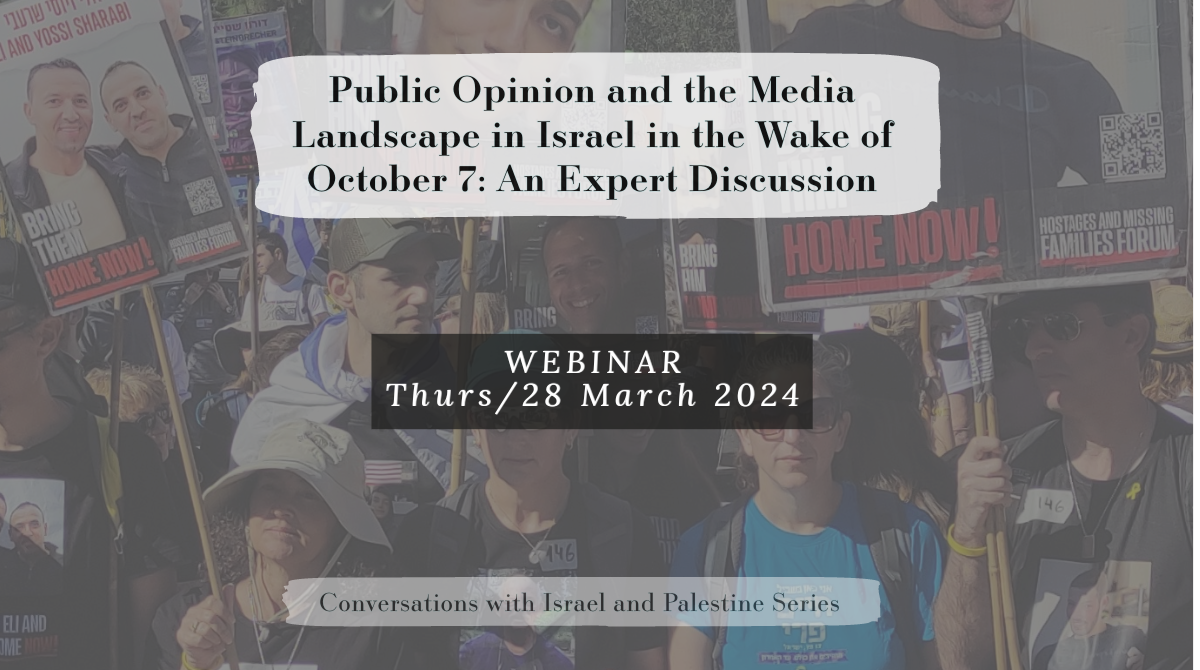It’s been described as a “dome of disconnection” – the yawning gap that’s emerged between the way in which Israelis perceive post-October 7 reality and how that reality is grasped by much of the rest of the world. While news consumers in the U.S. and across the globe are exposed daily to horrific Palestinian suffering in Gaza, Israelis remain focused on their understandable trauma and are shocked and confused by a world that seems to have moved past their agony and fear. “For Israelis, every day is October 7th,” many outside Israel have heard their Israeli friends and family say over the past few months. For most others, of course, it is not.
On Thursday, March 28, we were joined by expert panelists who shared their insights on the media landscape in Israel and how it impacted the country’s public opinion – on the war, its aims, and Israel’s wartime conduct, on the nation’s political leadership, and on what the “day after” should look like.
With us to discuss were:
- Prof. Tamar Hermann, Academic Director of the Viterbi Family Center for Public Opinion and Policy Research and Senior Fellow at the Israel Democracy Institute
- Oren Persico, Staff Writer at The Seventh Eye, Israel’s only independent investigative magazine devoted entirely to the media and freedom of speech
- Rabbi Andrea London (moderator) of Beth Emet, The Free Synagogue, and a member of the Partners for Progressive Israel board

